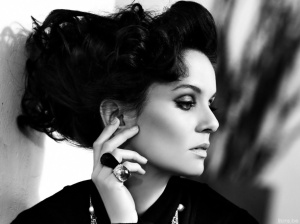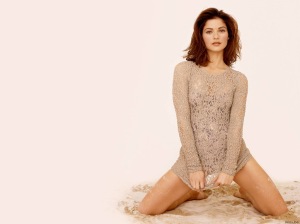
It’s almost par for course that a television series, after a certain number of episodes, after a certain number of typical start to finish storylines, will eventually go all in media res on us, thrusting the viewer right into the thick of the action, early, and then explaining as the story progresses. So it’s no surprise that The Walking Dead in the midst of its second season dusted off the trick and put it to work this past week for the opening scene of “18 Miles Out”. Glen Mazzara, the Brit who replaced the show’s creator, Frank Darabont, as showrunner this past July, has refreshingly decided to heighten the action and seemingly (if not actually) quicken the pace of the series, utilizing the tools at a writer’s disposal to the benefit of the viewer- our bloodlust and waning attention spans.
The teaser before the opening credits starts with zombies chasing folk; reminding everyone why ‘zombie apocalypse’ as a premise was appealing enough for AMC to remake Lost without any of the original’s selling points (no island, no time travel, and despite how hard Shane tries to Sawyer it up each episode, no Sawyer), and hypnotic enough to have record-breaking cable viewership each outing. While so much time has been spent up to this point closely examining the contrasting ideologies of the good cop and the bad cop, thoroughly dissecting what defines humanity and community in an allegorically bleak America, and other thematic bores, this episode, for the first time in an embarrassingly long time, brings the visceral image of zombies to the forefront, literally.
The zombies, like star pupils in a college writing workshop, show instead of tell and allow for more compelling story progression. The establishment of an A-plot that bears a resemblance to what the series once promised us, even makes the B-plot, and characters therein, flourish in ways the previous glacial pace hadn’t allowed. Did we know that the show had female characters before this episode? Maybe. Did we know that they were more than simply mothers, daughters, sisters, and liabilities? We do now.
While the boys were out expelling tension with fisticuffs (as men sometimes do) and piercing zombie skulls (as Lori claims men should always do), the girls discuss suicide and the role of women in a zombie-riddled society. The first ladies of The Walking Dead, Andrea and Lori, have understandably conflicting views and get at each other’s throats in a way that has all the perks of a cat fight while maintaining or even establishing these characters as dynamic female leads. Andrea stands on her own without clamoring to be simply Shane’s female counterpart, and Lori almost has us forget that she’s the worst person on the show. Sounds like progress.
The Black guy, the redneck, the Asian, the old guys, and the kid who got shot weren’t in this episode, but they’re still alive, so diversity for diversity’s sake is still preserved. This episode seemed to be more about moving away from being a “cul-de-sac” of narrative or The Talking Dead as some critics have written, and many viewers have lamented. It seems like at some point the show stood completely still on AMC, questioning if it could be the Mad Men that viewers actually watched or the zombie story that was about something more. Interestingly, in rolling out a trope of televised fiction (if I remember correctly, The Flinstones always teased in media res before the theme song), “18 Miles Out” was a confident step in the direction of setting the series apart from every other cable drama, if only for reminding us we have a show about zombies on television, something invariably special.
Zombies.
Zombies eating flesh and zombies getting their brains bashed in. Zombies slowly chasing people as they inexplicably trip. Close calls. Blood and guts. Why wouldn’t the first few pages of every The Walking Dead script look just like that?








